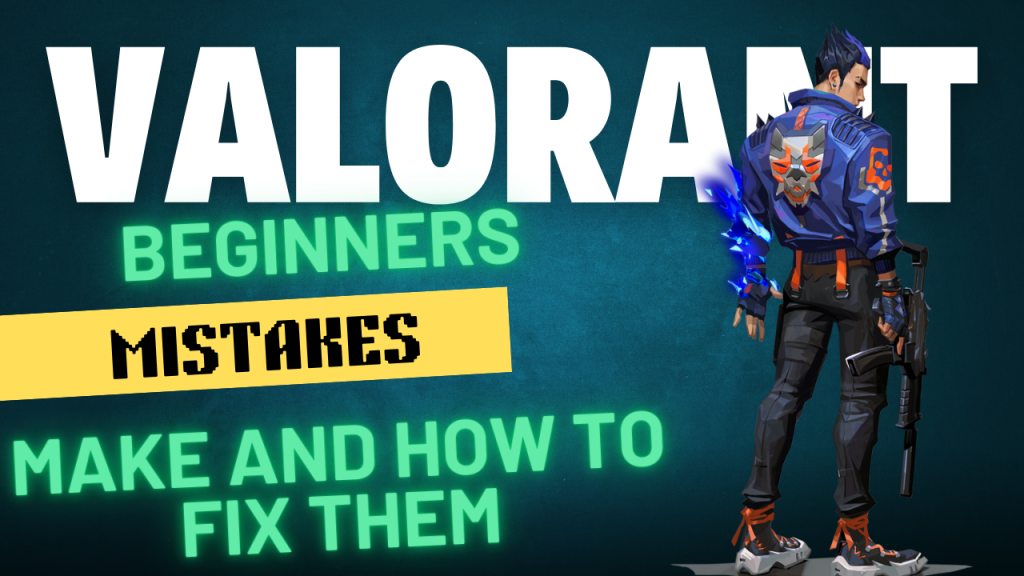Valorant, Riot Games’ tactical shooter, is about precision, strategy, and teamwork. As a beginner, making and learning from mistakes is normal. These mistakes in Valorant are usually found in a player with no FPS or shooter game background. These faults could quickly slow down your progression and even lead to your teammates’ frustration. To help you get a solid start, here’s a list of the most common pitfalls to avoid—and how to fix them.
Contents
Lack of Communication
Comms are Important
Valorant is a team-based game; communication is vital to winning the match. Many new players overlook this and think playing the game without comms or alarming teammates is unnecessary just by using ping or the text box. Comms can differentiate between winning and losing, even if the opponent is better.
How to Fix It:
- Use voice or text chat to provide simple callouts, such as enemy locations (“enemy mid”) or plans (“rotating to A”).
- Even if you’re shy, focus on sharing valuable information. Your team will find it very helpful.
Not Planning the Round
Many beginners think playing aggressively means being impactful. While this might work in some rounds, the enemy team will figure out the pattern and become predictable. Also, mindless rushing often results in an early death and disadvantages your team.
How to Fix It:
- Before the round, please tell your team which site to plant, how to do it, and whether someone should lurk.
- Slow down and assess the situation. Wait for teammates, use abilities wisely, and communicate your moves.
- Practice clearing corners to avoid being ambushed.
Neglecting Economy Management
Valorant Buy Menu
Many new players need help understanding the Valorant economy, which can lead to overspending and leaving them broke for the next round, giving opponents a significant advantage to win the round.
How to Fix It:
- Learn about save rounds, force buys, and when to go complete buy.
- Coordinate purchases with your team to ensure everyone is on the same page.
Overusing Abilities
Abilities are powerful tools in Valorant, but spamming them without purpose can leave you defenseless when it matters most.
How to Fix It:
- Understand your agent’s abilities and their optimal usage.
- Watch professional players or tutorials to learn timing and placement for critical skills.
Crosshair Placement
Crosshair placement
Crosshair placement is the most essential thing in a shooter game like Valorant. Keeping it low or at random places leads to slower reaction times and missed shots, eventually losing the 1v1. Just keep the crosshair steady and at the enemy’s head level.
How to Fix It:
- Keep your crosshair at head level and pre-aim common angles where enemies might appear.
- Use aim trainers or the Valorant practice range to improve accuracy.
Sounds Matter
Another mistake beginners make and tend not to care about is sound. Using the sounds correctly lets you hear enemy footsteps, gunshots, and utility sounds. All these things help you identify the enemy’s location.
How to Fix It:
- Walk (shift key by default) to stay silent when near enemies.
- Use headphones to catch crucial audio cues like footsteps, reloads, or ability sounds.
Overcommitting to One Role
While it is good to pick an Agent and master it, sticking to a single role can limit your flexibility and hurt your team when a specific role needs to be filled.
How to Fix It:
- Learn at least one agent from each category (Duelist, Controller, Initiator, Sentinel).
- Experiment with different playstyles to find what works best for you.
Skipping Map Knowledge
Not knowing each map individually and their callout is a massive disadvantage for your team. Instead, what you want to do is make sure to spend enough time on custom maps to familiarize yourself with each map
How to Fix It:
- Spend time in custom games exploring maps.
- Learn callout names (e.g., “Heaven,” “Garage“) and common spots where enemies like to hold angles.
Not Using Mini Map Correctly
Valorant Mini Map
Many new players leave valuable information on the table by simply needing to pay more attention to the mini-map. This function helps you and your teammates in many different ways.
How to Fix It:
- In mini map settings, make sure the player is centered
- Always watch the mini-map as it can help spot the enemy’s locations.
Not Reviewing Gameplay
Improvement comes from analyzing what went wrong, making adjustments, taking notes, and knowing why and why you died. This could help you avoid repeating the same mistake and easily elevate your gameplay to the next level.
How to Fix It:
- Before playing a game, ensure it is recorded for analysis later.
- Focus on positioning, aim, and decision-making to identify areas for improvement.
Will you Improve Instentely?
By applying these tips, you will notice a significant shift in your gameplay. You’ll find yourself climbing the ranks and becoming a valuable team player in no time. Remember to focus on the crosshair placement and your utility usage, and focus on and review your gameplay. You will see the difference in your performance in no time.



